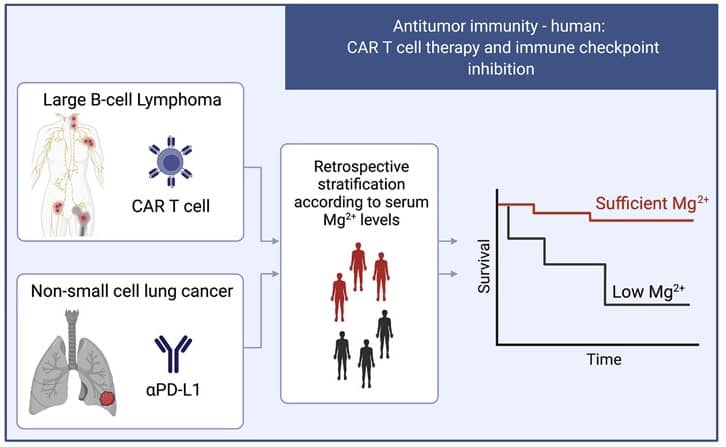Magnesium Deficiency & You
MAGNESIUM deficiency is very common. Having normal levels is associated with improved effectiveness of immunotherapy, immune system response against cancer, a lower risk of developing metastatic disease and cardiovascular disease, improved mood, regular bowel movements, insulin sensitivity, bone health and much more.
The average male and female over 31 years of age are consuming 200–300 mg/d less magnesium per day than they need. These are the recently updated recommended daily amounts for magnesium:
—Women 31+: 520–535 mg/d
—Men 31+: 630–655 mg/d
Importantly, magnesium absorption from the gut requires that you have adequate levels of vitamin D. Since the majority of adults are deficient in vitamin D, even those who are consuming enough magnesium may still be deficient.
Get your magnesium levels tested and ensure it’s in the normal range. Blood serum magnesium (most providers order this) is not the best measure of intracellular magnesium levels (where it really matters). Ask your provider to order a red blood cell magnesium test.
]I often recommend buffered chelated magnesium bisglycinate, as this is one of the most bioavailable forms and less likely to cause gastrointestinal upset.



